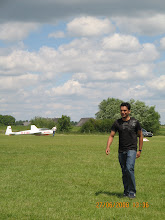I wish all Indians a very happy Independence
Day. On this auspicious day, lets thank all the freedom fighters who fought
against the mighty British and gifted us the FREEDOM. We all know about the
freedom movement and the leaders behind it. How many of us know the history of India after Gandhiji era? To people
like me, who belong to the third generation of independent India, we only know the
political leaders from the post-Independence era. On this very special day, I
wish to remember a very special person from the post-Independence era whose vision
and ideology has helped India preserve its Democracy. His practices and
regulations that he laid out in 1952 are still followed today. He is our first
election commissioner, Sukumar Sen. This civil service officer is the architect
of our prestigious and powerful Election commission.
In march 1950, Prime minister Nehru entrusted Mr
Sen to invent an election system for democratic India and conduct the first
elections to both parliament and state assemblies in spring, 1951. In an era
where the right to vote in most countries and also in the west, was reserved
only to the men of property and working class, Mr Sen introduced the concept of
universal adult franchise. 85% of
the 176 million electorate could not read or write. This is the reason why we
have symbols and not just the names for each party. Each one of them need to be
identified, named and registered. Most of the women refused to give their own
name but instead wished to be registered as A’s mother or B’s wife. Mr Sen is
the one who abolished this culture and gave a proper identity to women. The following numbers help us understand the scale
of Mr Sen’s electoral exercise: elections are held to 500 parliament seats and
4000 assembly seats, 224,000 polling booths were constructed, 8200 tonnes of
steel was used to make ballot boxes, 16,500 clerks on six months contract were
hired to type the electoral rolls, 56,000 presiding officers, 280,000 helpers
and 224,000 policemen were put on duty. Bridges were built to reach out to
remote hilly regions and naval ships were used to cover the islands in the Indian
ocean. The media of film and radio was extensively used to educate the people
about the election process. Several documentaries were made and shown in cinemas
all over India. To avoid impersonation, Indian scientists had invented an ink
which when applied on voters’ fingers stayed for a week. A total of 389,816 phials
of this ink was used in the election.
This massive electoral exercise was
successfully executed in spring, 1952 under the great leadership of Mr Sen.
Many of the methods that were invented or practiced during this exercise are used
even in today’s electioneering.
On this Independence Day, I wish to remember and
thank Mr Sen, the hero of Indian Democracy.
Happy Independence Day.
Subscribe to:
Comments (Atom)
